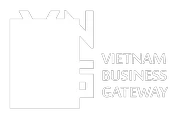Food supplements are products meant to supplement your diet and provide additional nutrients that may be lacking. For example, vitamins, minerals, amino acids, or herbs. They come in various forms, including tablets, capsules, powders, liquids, and gummies. And you can buy it over the counter or from a healthcare provider.
Vietnam’s economy has experienced significant growth in recent years, leading to higher incomes for the middle class. The increased demand for healthy products, particularly food supplements to support workout routines, yoga practices, and other activities, is massive.
Hence, Vietnam presents a rapidly expanding market for food supplement commercial. For those looking to enter this market. It is crucial to understand the regulations and processes for importing and distributing products in Vietnam. This blog provides an extensive guide on step-by-step company registration and product importation in Vietnam.
STEPS TO IMPORT AND DISTRIBUTE FOOD SUPPLEMENTS INTO VIETNAM?
To set up a business for importing and distributing food supplements in Vietnam. There are 3 main steps:
Step 1: Open a trading company
Step 2: Import Food Supplements into Vietnam
Step 3: Distribute imported products to the market
STEP 1: HOW TO SET UP A COMPANY IN VIETNAM
Firstly, you’ll need to register a business with trading functions that will allow you to conduct wholesale operations. Keep in mind that wholesale companies sell only to other businesses (B2B). If you want to sell products to customers, you must have a Retail License. We will explain this license in more detail later.
To set up a Limited Liability Company (LLC) in Vietnam, you need two certificates: the Business Registration Certificate (BRC) and the Investment Registration Certificate (IRC). These are issued by the Department of Finance. The process usually takes about 4–6 weeks (30–45 days).
A trading company is a “non-conditional” business. This means you only need to meet the basic requirements to register your company in Vietnam.
Some of these requirements include having a business address. This can be either a virtual or a physical address during the setup stage.
It is also important to appoint a legal representative (or Resident Director). This person holds legal responsibility for your company under Vietnamese law. The representative can be a Vietnamese citizen or a foreigner, including yourself. However, they must have a permanent address in Vietnam.
If you do not have a suitable candidate for this role, you may use a nominee resident director.
Another key requirement is capital investment. You must transfer the registered capital into the company once it is fully incorporated. Although Vietnamese law does not set a minimum amount, you should choose a reasonable level of capital to match your business activities.
Learn more details about opening a Trading company in Vietnam – with 100% foreign ownership
STEP 2: HOW TO IMPORT FOOD SUPPLEMENT PRODUCTS INTO VIETNAM?
After completing the incorporation phase, you can start to import food supplements into Vietnam. This procedure includes these steps:
Determine the HS code of the commodity
As a trading company importing food supplements, you need to define the exact HS code for your products. This code is used to calculate the correct taxes and to complete customs clearance.
In Vietnam, the HS code for food supplements is under group 210690. Using the correct HS code is important to follow import rules and to avoid problems with the authorities.
Obtain the Certificate of Food Safety
The next step is to obtain a Certificate of Food Safety from the Ministry of Health in Vietnam. This certificate is the key document. It lists the products you plan to import, and each product requires its own certificate.
For example, if you plan to import ten different food supplement products into Vietnam, you must apply for ten individual certificates. The previous regulation required the renewal of the certificate every three years. However, this regulation has been revised, and the certificates are now valid indefinitely.
To obtain a Certificate of Food Safety, you send the sample to authorized labs such as the Center for Standards, Metrology and Quality 1, Quality Assurance and Testing Center 3 (QUATEST 3), or the National Institute for Food Control- NIFC to carry out food safety and hygiene inspections, and register accordingly. Afterward, you can use the inspection results in the paperwork for the certificates.
In practice, the process may take a few months, and mistakes or problems with the submitted papers can make the process longer. So, it is very important to make sure that all required papers are complete, correct, and sent to the right authorities on time. This is especially important for you who want to speed up the certification and bring the products to market faster.
How to Do Customs Procedure for Importing Food Supplements into Vietnam?
After you get the Certificate of Food Safety, the next step is to start the import process. First, you need to submit an application to import and reserve goods. Along with the standard documents for customs clearance—such as the Invoice, Packing List, COO, Airway Bill, and Bill of Lading—the Customs Office will also require the Certificate of Food Safety from the previous step.
If you provide all the required documents, customs clearance is usually finished within two business days. However, in some cases, your shipment may be placed on the “Red Line.” This means customs will open and check the goods directly. If this happens, clearance can take a few extra days.
STEP 3 – HOW TO DO FOOD SUPPLEMENT DISTRIBUTION IN VIETNAM?
As mentioned earlier, a trading company automatically has the wholesale function. This means it can import, export, and sell products to other businesses (B2B) right after completing the incorporation process.
If the company also wants to sell food supplements directly to customers, it must apply for a Retail License from the Department of Industry and Trade. To get this license, the company needs to submit a business plan that explains its operations and future plans, as well as a financial plan showing how capital will be used, together with liquidity statements.
After the company is established, it can submit the Retail License application. The dossier must also include an audited financial statement and a confirmation from the Tax Department that the company has no pending tax obligations (this applies if the company has operated for at least one year in Vietnam).
In theory, the processing time is 10 business days. But in practice, it may take longer if Government officers ask for more details or extra documents. This can extend the process by 1–3 months. Investors should keep this in mind when planning their timelines.
HOW CAN VNBG ASSIST YOU?
Establishing a trading company in Vietnam is a simple process. This business doesn’t have special conditions or additional licenses. The only exception is retail activities, which must apply for a Retail License beforehand.
For companies that want to import and sell food supplements, the main challenge is paperwork. Vietnam has strict rules for these items, so getting the right permits and approvals can take time. Still, with proper guidance, the process is easier to manage.
At VNBG, we have many years of experience helping investors register a foreign-owned company in Vietnam. We also support clients with their import activities. This includes applying for trading licenses in Vietnam (retail license, import license, etc).
Please fill out the form below and reach out to our consultant for more details.

















